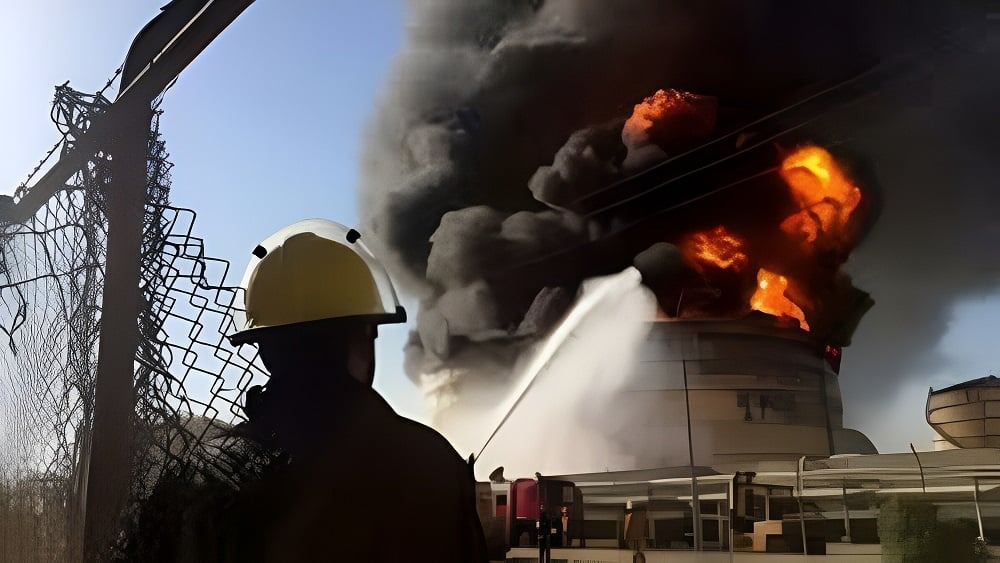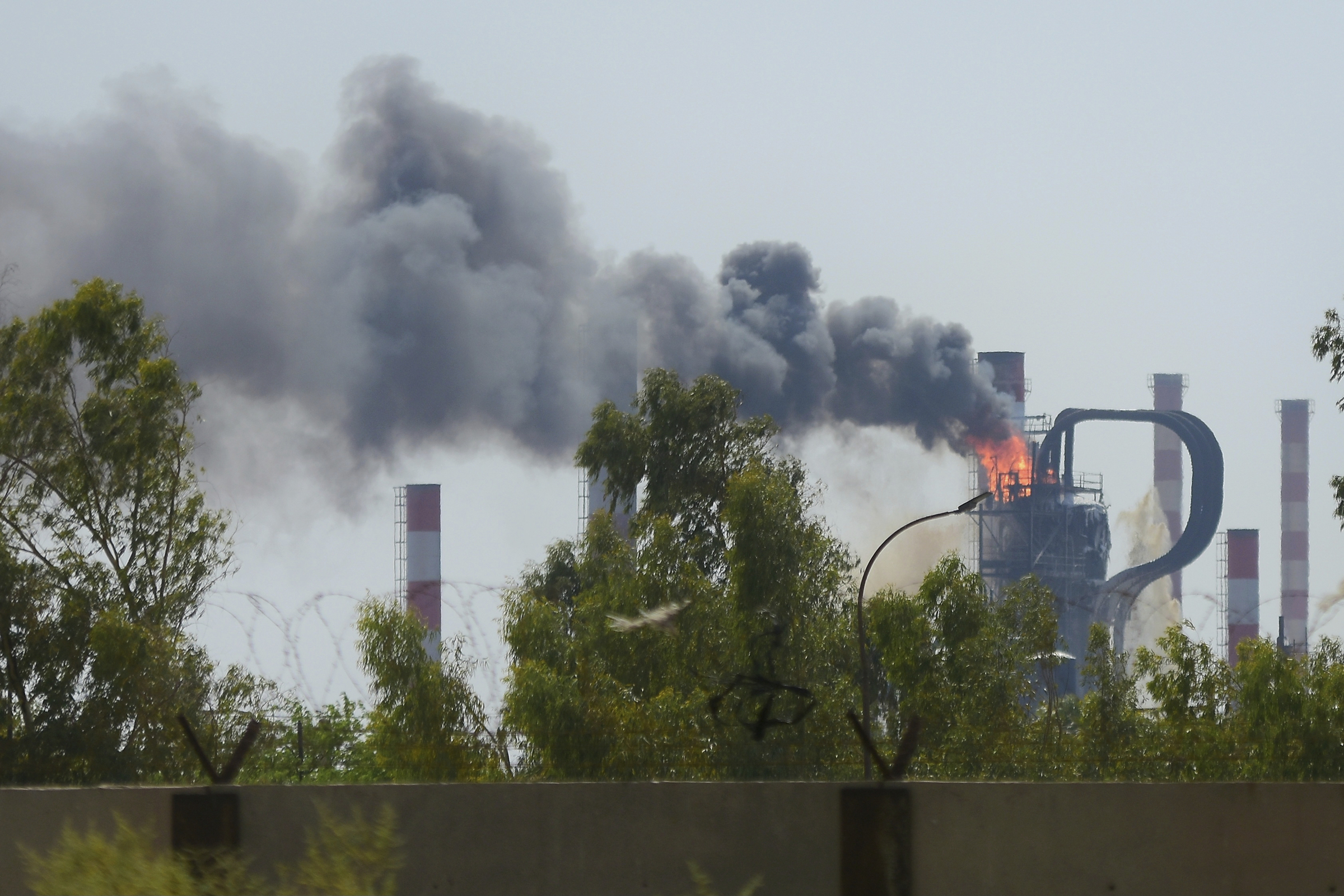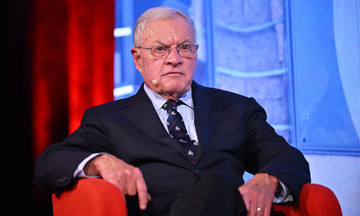In recent weeks, Iran has experienced a surge in fires and explosions, with incidents occurring almost daily. Some have targeted strategic locations, such as the July 19 oil refinery explosion in the southern city of Abadan, which killed one person and disrupted production.
Iranian officials attribute most incidents to gas leaks, aging infrastructure, and safety violations. However, observers inside and outside Iran suspect a more sinister cause, possibly linked to Israel.
 |
Firefighters battle a blaze at an oil refinery in Abadan, southwestern Iran, on 19/7. Photo: NCRI |
Firefighters battle a blaze at an oil refinery in Abadan, southwestern Iran, on 19/7. Photo: NCRI
The series of incidents began in early July, with several occurring in Tehran. On 11/7, an explosion in a low-income apartment building for judicial employees caused walls to collapse and windows to shatter.
Two days later, an explosion in a first-floor apartment in Qom injured seven people and crushed a taxi parked on the street. Debris scattered across the neighborhood.
Hours later, reports emerged of a fire near Mashhad International Airport and another at the Qaem commercial complex in Mashhad, northeastern Iran. On 15/7, social media videos showed the Zomorod Tower in Tabriz, northwestern Iran, engulfed in flames.
Fire engulfs the Zomorod Tower in Tabriz, Iran. Video: X/roookamkon1
Three anonymous Iranian officials, including a member of the Islamic Revolutionary Guard Corps (IRGC), believe many of these incidents are acts of sabotage.
Two sources said the apartment in Qom was apparently rented by undercover agents who left after deliberately turning on the oven and opening the gas valve.
In the Tehran incident, they suggest saboteurs aimed to instill fear among prosecutors and judges, mirroring Israeli agents' targeting of scientists involved in Tehran's nuclear program.
Israel and Iran have long been adversaries. Tensions escalated into a 12-day conflict last June, during which Tel Aviv, relying on its spy network in Iran, assassinated several Iranian nuclear scientists and military commanders.
According to the IRGC official, the near-daily explosions, even if accidental, are causing growing anxiety among officials and citizens.
Omid Memarian, an Iran expert at the U.S.-based DAWN, said, "The Iranian government's lack of transparency and clear response has fueled suspicion and fear. Iranians understand their government often downplays or denies Israeli attacks".
 |
Smoke rises from an oil refinery in Abadan, southwestern Iran, on 19/7. Photo: AP |
Smoke rises from an oil refinery in Abadan, southwestern Iran, on 19/7. Photo: AP
Iranian officials have offered explanations for some incidents, claiming the fire near Mashhad International Airport was a "controlled destruction of cannabis" by security forces, and a fire in Tehran was merely rubbish burning.
Tehran's fire chief, Ghodratollah Mohammadi, blamed gas leaks on "aging infrastructure, substandard equipment, and safety violations." The National Iranian Gas Company reported no unusual increase in gas explosions this year compared to last.
However, these assurances have not allayed public fears. Many wonder if the 12-day conflict with Israel has truly ended.
Mohammed, a cafe owner in Kashan, said, "We believe Israel is behind the explosions, and the war is starting again". He expressed fear and confusion, as Kashan is near Iranian nuclear facilities and missile bases, potential Israeli targets.
To cope, some Iranians have resorted to dark humor, sharing memes of Israeli Prime Minister Benjamin Netanyahu in a National Iranian Gas Company uniform.
Social media accounts linked to the Israeli government have joined in, urging Iranians to burn Esphand, a traditional incense believed to ward off evil spirits.
A European official handling Iranian affairs also considers the recent explosions in Iran to be sabotage, possibly involving Israel.
Meanwhile, Israeli officials refuse to comment. Israel's foreign intelligence agency, Mossad, declared it would continue covert operations in Iran, even after the June 24 ceasefire.
The Mossad director stated in late June, "We will remain present there, as we have always been".
Nhu Tam (According to Reuters, NCRI, The Week)












